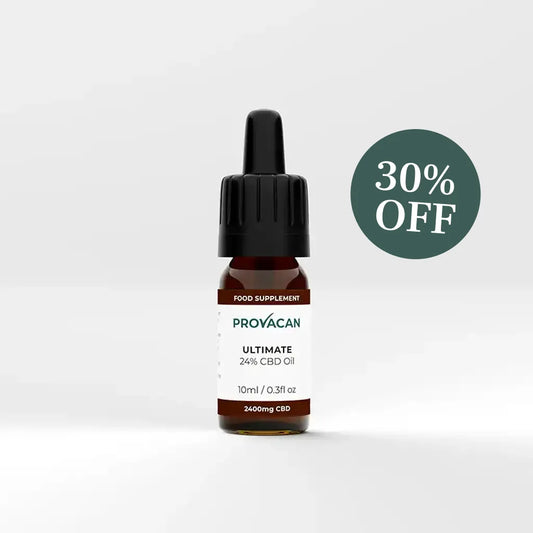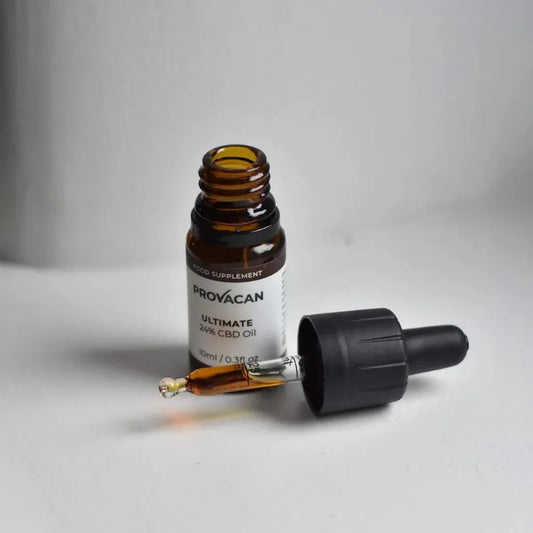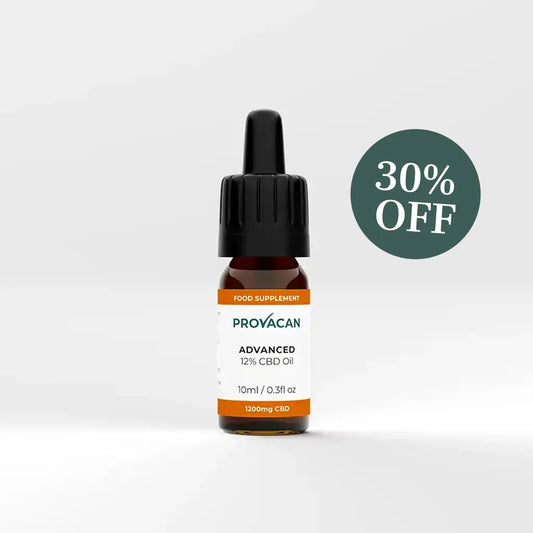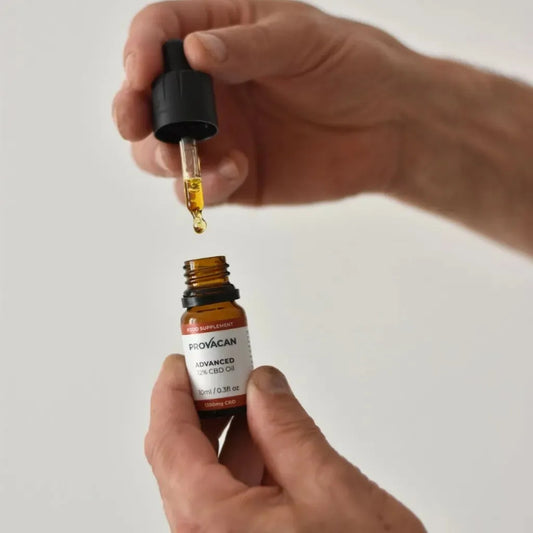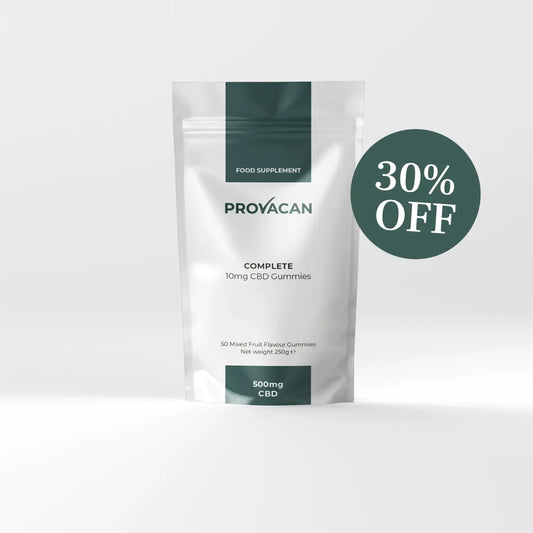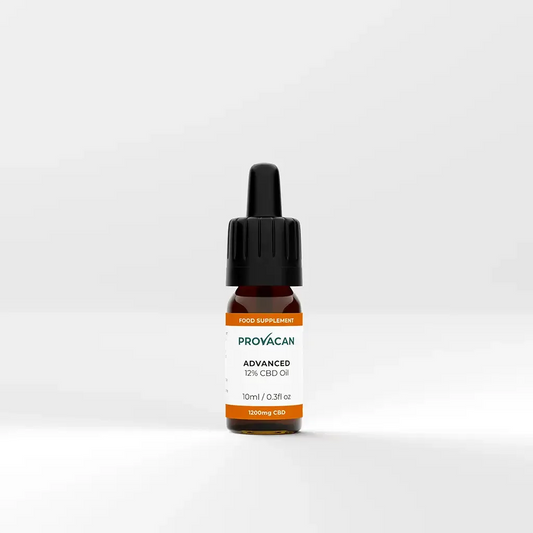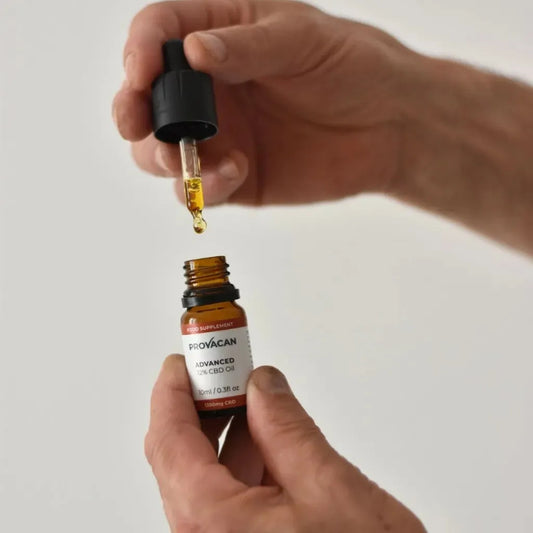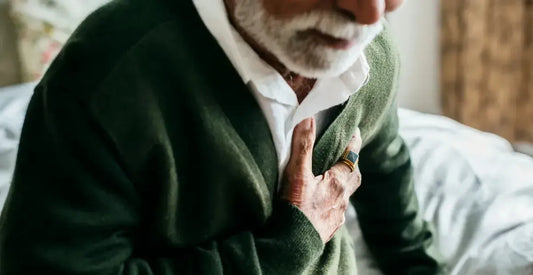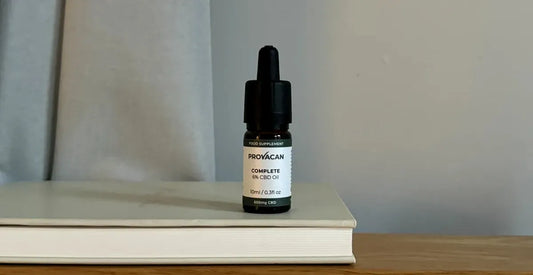Key takeaways:
- Understanding andropause symptoms: Andropause, often referred to as male menopause, involves a gradual decline in testosterone and can lead to symptoms such as fatigue, low libido, mood swings, and muscle loss.
- Natural support through lifestyle and supplements: Diet, exercise, sleep, and targeted men’s health supplements – such as zinc, vitamin D, and CBD – can help manage male menopause symptoms and support overall wellbeing.
- Support during Men’s Health Month and beyond: During Men’s Health Month and throughout the year, Provacan offers trusted, expert-led support and personalised guidance through Clinical Nutritionist-led consultations alongside scientifically-backed, high-quality supplements to help men navigate andropause with confidence.
Female menopause has rightly become a hot topic in recent years, with growing awareness and support. But what about men? Hormonal changes in men are still rarely talked about, and clear guidance is hard to come by.
We think it's time to change that. So – let’s talk about it.
What is andropause?
Andropause – sometimes called the male menopause – refers to age-related hormonal shifts in men, primarily a gradual decline in testosterone. Unlike female menopause, this isn’t a sudden or complete shutdown of hormone production. Instead, it’s a slow, progressive drop that can begin in your late 30s or 40s and continue into later life.
Common andropause symptoms
The symptoms of andropause are broad and vary in severity. Here are some of the most common ones to look out for:
- Central weight gain
- Low energy and libido
- Erectile dysfunction
- Infertility
- Hair loss
- Mood changes
- Loss of muscle mass
- Poor concentration
While testosterone decline is a key driver, it’s rarely the only factor. Lifestyle, nutrition, stress, and overall health all play a role in how these symptoms show up and how intense they are.
Why does testosterone decline?
Low testosterone – the driving force
Testosterone is often thought of as the “male hormone”, though both men and women produce it. In men, it's mainly made in the testicles (with small amounts also from the adrenal glands), and it’s crucial for everything from muscle mass, bone density to mood and sex drive.
Low testosterone, medically referred to as hypogonadism, is the most common sex hormone imbalance in men – and often the reason behind many of the symptoms listed above.
Is testosterone decline inevitable?
Some drop in testosterone is a natural part of ageing. But how steep that decline is – and how you feel as it happens – can be influenced by lifestyle factors: how you eat, move, sleep, and manage stress.
Key risk factors for low testosterone include:
- Zinc deficiency: Zinc is essential for testosterone production.
- Overtraining: Excessive exercise raises cortisol (the stress hormone), which can suppress testosterone.
- Obesity: Body fat increases the conversion of testosterone into oestrogen and drives chronic inflammation.
- Poor sleep: Testosterone production is closely tied to quality sleep.
- Medications: Some drugs can interfere with hormone balance.
Hormonal imbalances: what else is going on during andropause?
DHT – testosterone, but stronger
DHT (dihydrotestosterone) is a metabolite of testosterone – meaning it’s made from testosterone in the body. It’s 3-6 times more potent at binding to androgen receptors, which are responsible for responding to male sex hormones. DHT is responsible for classic male traits: deep voice, facial hair, muscle mass, sexual function, and prostate growth.
But like all hormones, balance is key.
- Too much DHT: Can lead to male pattern baldness, acne, and enlarged prostate.
- Too little DHT: May cause low libido, fatigue, and reduced motivation.
To support healthy DHT levels:
- Maintain a healthy weight and body fat percentage (BMI can help, but isn’t always accurate)
- Prioritise sleep, nutrition, and stress management
- Consider short-term zinc supplementation (15-30mg daily) as it supports testosterone synthesis – but avoid long-term use without medical advice, as it can deplete copper
High oestrogen in men – the hidden culprit
Yes, men have oestrogen. And yes, they need it – for bone strength, brain health, and sexual function. But when levels get too high, it can cause issues.
Oestrogen in men comes primarily from testosterone via the enzyme aromatase. If aromatase activity is too high, you end up with less testosterone – and more oestrogen than you need.
Signs of high oestrogen in men:
- Gynecomastia (male breast tissue)
- Belly and chest fat
- Mood swings
- Low libido
How to lower aromatase naturally:
- Eat cruciferous vegetables: broccoli, cauliflower, kale, cabbage, brussels sprouts
- Drink 2-3 cups of green tea a day: rich in EGCG, a powerful compound that reduces oestrogen
- Maintain a healthy weight: body fat increases aromatase activity
Natural solutions for managing the male menopause symptoms
While testosterone therapy (TRT) is one medical option, many men prefer to start with natural solutions to support their hormones. Here’s how you can do that.
Most effective ways to support your hormones naturally
The great news is that diet and lifestyle can make a significant difference, and avoiding unhealthy habits is just as important as adopting healthy ones.
| ✅ The dos | ❌ The don’ts |
|---|---|
| Eat a low-Glycaemic Index diet with healthy fats: avocado, wild fish, nuts, seeds | Avoid stimulants and inflammatory foods: processed foods, sugar, fried food, alcohol, and too much caffeine |
| Load up on zinc-rich foods: oysters, beef, egg yolks, pumpkin seeds, lentils | Don’t heat food in plastic containers: microplastics can interfere with hormone receptors |
| Eat plenty of fibre: wholegrains, legumes, veggies, nuts | Skip the late nights: your body needs early, restful sleep |
| Get quality sleep: 7-9 hours per night | Avoid screen time before bed: wind down instead with family or quiet time |
| Focus on balanced exercise: resistance training and moderate cardio | Ditch excessive cardio: like marathon training |
| Get daily sun for vitamin D: supplement in winter if needed | |
| Consider men's health supplements: vitamin D, magnesium, CBD or zinc – but always check in with your doctor before starting | |
| Be kind to yourself: this is a time of change, and it’s okay to slow down |
The Endocannabinoid System and CBD for men’s health
The Endocannabinoid System – your master regulator
The Endocannabinoid System (ECS) helps keep your body balanced across multiple systems: mood, metabolism, sleep, immunity, and hormone regulation.
Given how andropause can impact stress, sleep, and mood, CBD (cannabidiol) can be a useful tool to help navigate this transition.
How does CBD help men’s health?
- It’s non-psychoactive (no "high")
- It modulates ECS receptors to support hormone balance
- It may reduce inflammation and lower cortisol, protecting testosterone
- It supports better sleep and mood – key for anyone feeling low, fatigued, or anxious due to andropause
While CBD isn’t a hormone replacement, it can help the body regain equilibrium and improve quality of life during this time of change.
Final thoughts
The hormonal shifts associated with andropause are real – and they deserve more attention. From fatigue and libido changes to mood and concentration struggles, male menopause symptoms can impact many aspects of life. But the good news? You don’t have to simply accept them.
By focusing on nutrition, sleep, movement, and smart men’s health supplements, you can support testosterone naturally and regain energy, balance, and confidence. And if you’re exploring options like CBD, know that its potential to help restore balance – particularly in mood, stress, and sleep – can make a real difference.
At Provacan, we’re committed to your health through every stage of life. With carefully formulated products, expert-backed advice, and a human-first approach, we’re here to support your journey – especially during Men’s Health Month and beyond.
Want to know more?
If you have any questions or want personalised recommendations, book a free consultation with me – I’m Vicky McGregor, the Clinical Nutritionist who wrote this article, and I’m here to help you on your health journey.
Read also:
- The ultimate guide to the benefits of CBD oil for men
- A spotlight on men’s heart health: are you putting yourself at risk?
- How to determine the right CBD dosage for stress
Sources:
- Movember Foundation (2024). Men’s Health and Healthcare Seeking Behaviour Report. https://uk.movember.com/story/ministers-mps-and-a-mayor-take-a-seat-on-movember-s-a-problem-halved-bench-as-movember-calls-for-greater-government-action-on-men-s-health
- Mayo Clinic. Low Testosterone (Male Hypogonadism). https://www.mayoclinic.org/diseases-conditions/male-hypogonadism/symptoms-causes/syc-20354881
- Harvard Health Publishing (2025). Navigating “Male Menopause.” https://www.health.harvard.edu/mens-health/navigating-male-menopause
- Harvard Health Publishing (2022). Understanding Sex Drive. https://www.health.harvard.edu/mens-health/understanding-sex-drive




